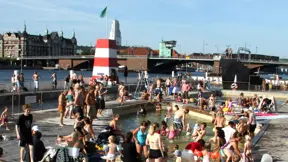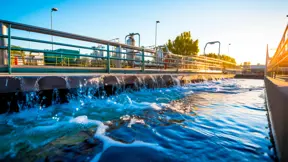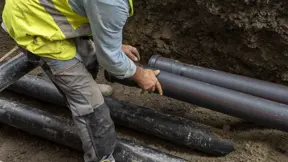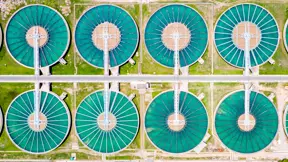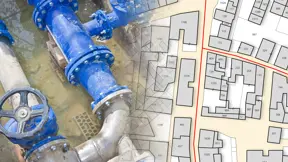
Strengthening climate resilience in municipalities of Brazil and Argentina
Integrating grey and nature-based flood management measures for sustainable urban development
South American cities are increasingly impacted by climate-related disasters, and the projected rise in the frequency and intensity of these events is expected to widen existing inequalities, as the most vulnerable communities are also those with fewer resources to adapt. To build resilience, it is crucial for cities to integrate climate adaptation strategies and flood and drought risk management into urban planning. Within the framework of the EUROCLIMA+ programme, and under the implementation of the French Development Agency (AFD), different pilot areas of the west metropolitan region of São Paulo (Brazil) and City of Córdoba (Argentina) were selected due to their shared challenges with urbanisation and frequent flooding. DHI delivered a comprehensive flood risk management plan for each pilot area that combines structural and nature-based solutions (NbS), which, once implemented, will significantly reduce flooding and improve quality of life for residents.
Challenge
Meanwhile, the challenges of the pilot area in Argentina also stem from its highly urbanised area with nearly complete impermeability (96%) yet low slopes. In addition, although the upstream watershed remains largely agricultural and natural, the lack of an adequate rainwater collection network contributes to or exacerbates flooding due to characteristics of existing drainage. Additionally, flash floods from surface runoff and the rising water table further complicate flood management in this urban area.
Together, these challenges impact vulnerable communities, damaging residential, commercial and critical infrastructure, such as public transportation hubs.
Solution
DHI developed a comprehensive flood risk management plan for each of the four study areas by applying a methodology that included detailed data analysis, flood risk assessments and the creation of flood models, risk maps and consultation with the experts of each municipal authority. The plans identify key development solutions and incorporate them into preliminary designs. Additionally, the project provided recommendations, promoted best practices and developed educational materials to raise awareness for civil servants at the municipalities in question. Training programs were also conducted to equip stakeholders with the necessary knowledge and skills.
What made DHI’s solution unique?
- Integrated green and grey solutions: DHI’s hydrologists and urban flood protection and modelling experts worked with landscape architects to combine nature-based approaches, such as increasing permeability, with engineered infrastructure, like drainage pipes, retention basins and embankments, to create sustainable flood risk reduction strategies
- Advanced modelling: DHI used the MIKE+ 1D-2D hydrological and hydraulic model combined with LiDAR surveys to accurately simulate flood risks, even when hydrometric datasets were incomplete
- Field-based validation: Instead of conventional calibration, models were validated using field observations, photos and local testimonies, ensuring real-world accuracy
-
Participatory approach: The solution incorporated a collaborative process with local technical committees, ensuring urban development plans aligned with the municipalities’ needs and priorities
-
Capacity building and knowledge transfer: DHI’s climate change adaptation study included extensive training for local public servants, fostering long-term resilience and local expertise across the territories
Results
The environment will also benefit through the creation of floodable urban spaces that integrate green and blue infrastructure. These spaces enhance biodiversity, reduce pollution and improve water management. By converting floodplains into multifunctional spaces, such as parks and gardens, these urban areas become more resilient to climate change while providing valuable ecological functions. Additionally, these spaces are designed to be low maintenance, reducing the need for costly infrastructure repairs and ensuring long-term sustainability.
Client:
AFD – Agence Française de Développement (French Development Agency)
Location:
Brazil
Argentina
Related SDG(s):
SDG 11: Make cities inclusive, safe, resilient and sustainable
SDG 13: Take urgent action to combat climate change and its impacts
Technology:
‘We would like to express our gratitude to the entire team at DHI. The project results and the learnings have been very valuable, and the flood risk management plan stands out as a key document that effectively synthesises the project development. The Córdoba Steering Committee is grateful for the support received and we hope that through the use of these tools, we will improve the quality of urban life for all citizens.’
Project Monitoring Committee, Secretariat of Urban Development, Municipality of Córdoba, Argentina
'We are very pleased with the flood risk management plan and congratulate you on your outstanding work. The plan provides a clear and accessible summary of everything we've developed since the beginning of the project. Given the significant losses caused by flooding in our region, we hope the project’s results will allow us to replicate the methodology in other areas and continue progress in the pilot regions.’
Project Monitoring Committee, Secretariat of Environment and Water Resources, Municipality of Osasco, São Paulo, Brazil
‘The French Development Agency (AFD) greatly appreciates and values DHI's participation in this project, both for its work on the technical aspects during the development of flood risk management plans in the pilot areas and for the technical and institutional support provided to our Brazilian and Argentine partners and counterparts within the framework of this project. This is a true team effort aimed at improving the resilience of these two cities in the La Plata Basin and the quality of life of their residents.’
Euroclima Projects Coordinator, AFD
About our client
The AFD – Agence Française de Développement manages EU financing through the EUROCLIMA+ programme, supporting Latin American countries in addressing climate change by helping them implement public policies aligned with their Nationally Determined Contribution (NDCs) under the Paris Agreement. AFD provides technical expertise, financial support and fosters cooperation between the EU and Latin America. For this project, the beneficiaries were the Intermunicipal Consortium of the Western Metropolitan Region of São Paulo (Cioeste), Brazil, and the Municipality of Córdoba, Argentina.
You may also like
How can we help?
With our global network of offices, we make sure you get the right answers to your local needs. Tell us about your water challenges and we will get back to you.
